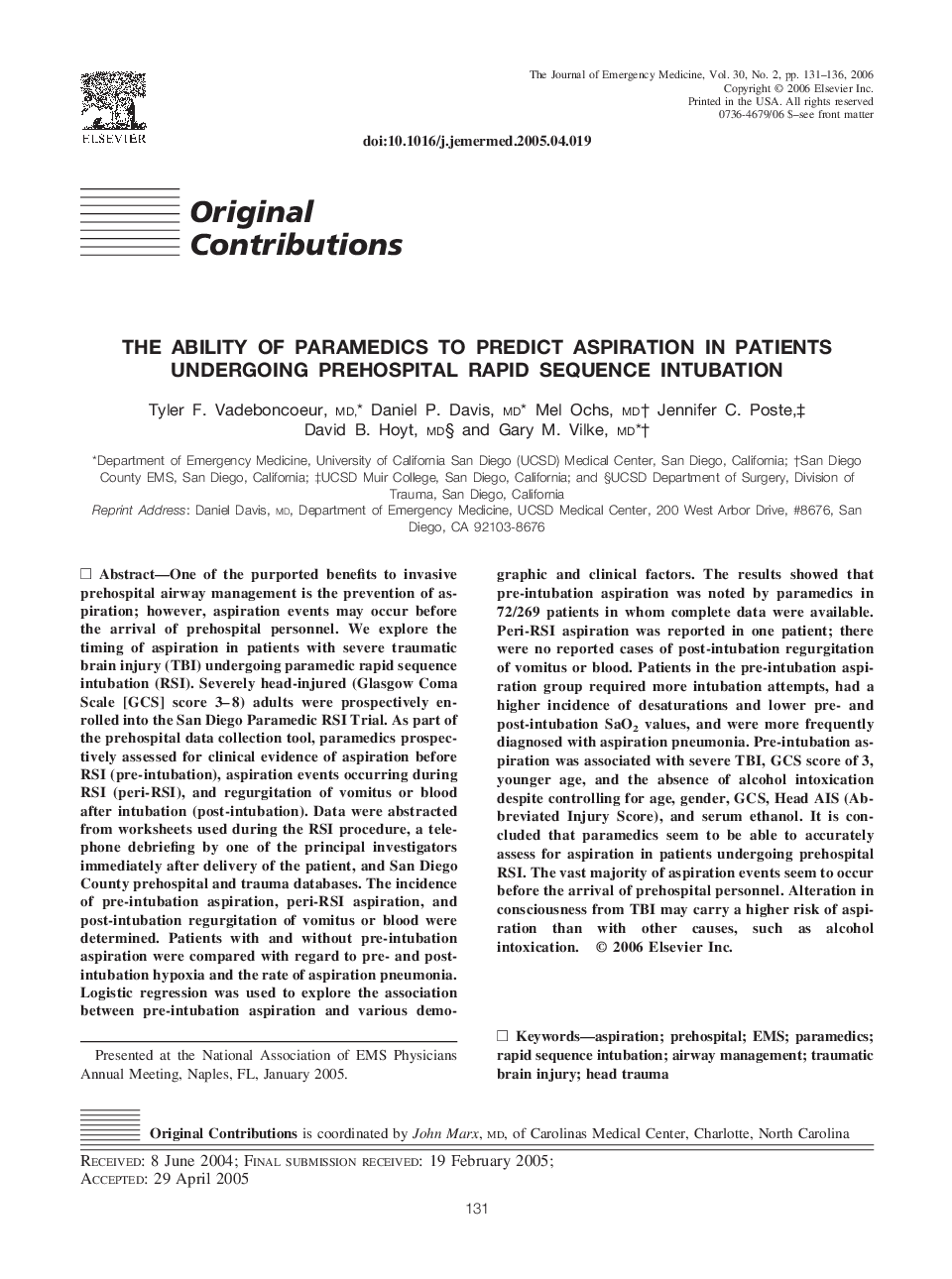| کد مقاله | کد نشریه | سال انتشار | مقاله انگلیسی | نسخه تمام متن |
|---|---|---|---|---|
| 3251167 | 1589219 | 2006 | 6 صفحه PDF | دانلود رایگان |

One of the purported benefits to invasive prehospital airway management is the prevention of aspiration; however, aspiration events may occur before the arrival of prehospital personnel. We explore the timing of aspiration in patients with severe traumatic brain injury (TBI) undergoing paramedic rapid sequence intubation (RSI). Severely head-injured (Glasgow Coma Scale [GCS] score 3–8) adults were prospectively enrolled into the San Diego Paramedic RSI Trial. As part of the prehospital data collection tool, paramedics prospectively assessed for clinical evidence of aspiration before RSI (pre-intubation), aspiration events occurring during RSI (peri-RSI), and regurgitation of vomitus or blood after intubation (post-intubation). Data were abstracted from worksheets used during the RSI procedure, a telephone debriefing by one of the principal investigators immediately after delivery of the patient, and San Diego County prehospital and trauma databases. The incidence of pre-intubation aspiration, peri-RSI aspiration, and post-intubation regurgitation of vomitus or blood were determined. Patients with and without pre-intubation aspiration were compared with regard to pre- and post-intubation hypoxia and the rate of aspiration pneumonia. Logistic regression was used to explore the association between pre-intubation aspiration and various demographic and clinical factors. The results showed that pre-intubation aspiration was noted by paramedics in 72/269 patients in whom complete data were available. Peri-RSI aspiration was reported in one patient; there were no reported cases of post-intubation regurgitation of vomitus or blood. Patients in the pre-intubation aspiration group required more intubation attempts, had a higher incidence of desaturations and lower pre- and post-intubation SaO2 values, and were more frequently diagnosed with aspiration pneumonia. Pre-intubation aspiration was associated with severe TBI, GCS score of 3, younger age, and the absence of alcohol intoxication despite controlling for age, gender, GCS, Head AIS (Abbreviated Injury Score), and serum ethanol. It is concluded that paramedics seem to be able to accurately assess for aspiration in patients undergoing prehospital RSI. The vast majority of aspiration events seem to occur before the arrival of prehospital personnel. Alteration in consciousness from TBI may carry a higher risk of aspiration than with other causes, such as alcohol intoxication.
Journal: The Journal of Emergency Medicine - Volume 30, Issue 2, February 2006, Pages 131–136